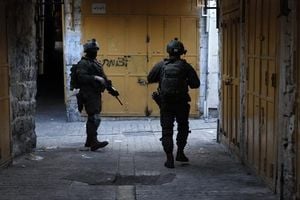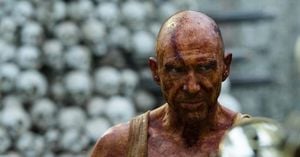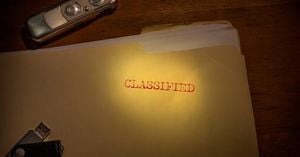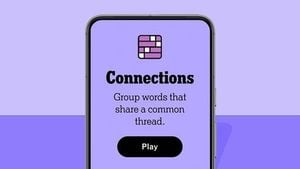The trial of Ryan Wesley Routh, the man accused of attempting to assassinate former President Donald Trump, came to a stunning and chaotic conclusion Tuesday in a Florida federal courthouse. After a swift and dramatic two-week trial, a jury found Routh guilty on all counts, including the attempted assassination of a major presidential candidate, assaulting a federal officer, and multiple federal firearms violations. The verdict capped a case that gripped the nation and shone a harsh spotlight on the rising tide of political violence in the United States.
It was September 15, 2024, when Routh, a 59-year-old former Trump supporter and itinerant building contractor, was discovered hiding in the shrubbery near the fence line of the Trump International Golf Club in West Palm Beach, Florida. According to prosecutors and detailed in ABC News and The New York Times, he was armed with a semiautomatic rifle whose serial number had been scratched off. As a Secret Service agent conducted a routine security sweep near the sixth hole, he spotted Routh’s partially obscured face and the barrel of a rifle pointed directly at him. The agent, sensing imminent danger, fired at Routh, who then fled the scene without firing a shot himself.
Routh’s escape was short-lived. Witnesses managed to capture his vehicle’s license plate, and law enforcement tracked him down on Interstate 95 in Martin County less than an hour later. He was arrested that afternoon by Martin County Sheriff’s deputies, ending what authorities described as a carefully planned and chilling assassination plot. As NBC News reported, Routh had been living out of his Nissan SUV for weeks, casing the golf course, monitoring Trump’s movements, and searching online for his campaign schedule and private jet arrivals.
At the heart of the prosecution’s case were two damning pieces of evidence: a note Routh penned before his arrest, addressed "To the World," which read, "This was an assassination attempt on Donald Trump," and a letter found in a box at a friend’s house in North Carolina. That letter, as cited by The New York Times, went further: "Dear World, This was an assassination attempt on Donald Trump but I failed you." It even offered a $150,000 bounty for killing the candidate. Prosecutor Christopher Browne did not mince words during his closing argument: "Make no mistake: The defendant was going to kill Donald Trump. The defendant was just one bullet away."
The jury of twelve, after hearing from 38 prosecution witnesses across seven days—including FBI special agent Kimberly McGreevy, who spent over six hours testifying—deliberated for just two and a half hours. Their verdict was unanimous: guilty on all counts. Routh, who had chosen to represent himself after expressing distrust in his court-appointed public defenders, delivered a rambling and at times incoherent closing argument. He insisted, "The opportunity was there for the defendant to shoot the president, and yet the trigger was never pulled. This human being does not have the capability to harm another human being." Judge Aileen Cannon, who presided over the trial, repeatedly admonished Routh for veering off-topic and disrupting proceedings, at one point interrupting his closing to remind him to "stay within the bounds of the case."
The verdict’s announcement sparked chaos inside the courtroom. According to AP and WPBF 25 News, Routh attempted to stab himself in the neck several times with a pen. Four armed U.S. marshals quickly restrained him and escorted him out. He returned minutes later, shackled and without his tie or jacket, but apparently unharmed. The emotional temperature in the courtroom soared even higher as Routh’s daughter, Sara Routh, began shouting, "Dad, I love you. Don’t do anything. I will get you out." She also lashed out at the court, exclaiming, "He didn’t hurt anybody. This is not fair. This is all rigged. You guys are..." before being escorted out herself. Judge Cannon, maintaining order, thanked both the lawyers and Routh for their time, "despite your outburst today."
The trial was remarkable not just for its high-profile target and violent intent, but for its unusual legal dynamics. Routh, with no formal legal training, insisted on acting as his own attorney—a decision Judge Cannon reluctantly allowed, calling it a "bad idea." His cross-examinations were brief, his witness list short, and his grasp of legal procedure shaky at best. At one point, when Judge Cannon tried to clarify rules of evidence, Routh replied, "I have no clue what that means." Nevertheless, his public defenders remained on standby throughout the proceedings, ready to step in if necessary.
Prosecutors painted a picture of a man who had become obsessed with world events, particularly the war in Ukraine, and who saw himself as playing a pivotal role in history. Evidence presented at trial included six cellphones, multiple license plates, and notes about possible escape flights to Mexico and Colombia. Two bullet-resistant metal plates were discovered mounted to the golf course fence, and experts testified that Routh’s fingerprint was found on the rifle scope. The rifle’s safety was off when it was recovered, further underscoring the imminent threat prosecutors argued he posed.
Routh’s defense, such as it was, rested on his claim that intent had not been proven and that simply having a weapon in the vicinity did not amount to attempted murder. He called only three witnesses: a firearms expert and two character witnesses, both of whom described him as nonviolent and "a jolly person." Routh himself did not testify, telling the judge, "I will not testify," and, when pressed, stating, "A year," in response to whether he had thought through the decision.
The case unfolded against the backdrop of heightened political tensions and violence. The trial began a day after the fatal shooting of conservative activist Charlie Kirk, an event that had already stoked national anxieties. Attorney General Pam Bondi, responding to the verdict, stated, "This attempted assassination was not only an attack on our president, but an affront to our very nation itself." The Justice Department, she asserted, was committed to "punishing those who engage in political violence."
Judge Cannon set sentencing for December 18, 2025, at 9:30 a.m., where Routh faces the possibility of life in prison. The gravity of the case, the rarity of such a trial, and its dramatic courtroom moments have all but ensured that the story will remain a touchstone in discussions about political violence and security in the U.S. for years to come.
As the courtroom emptied and the dust settled, the Routh case left behind a sobering reminder of the perils facing public figures—and the unpredictable nature of those who would do them harm.




